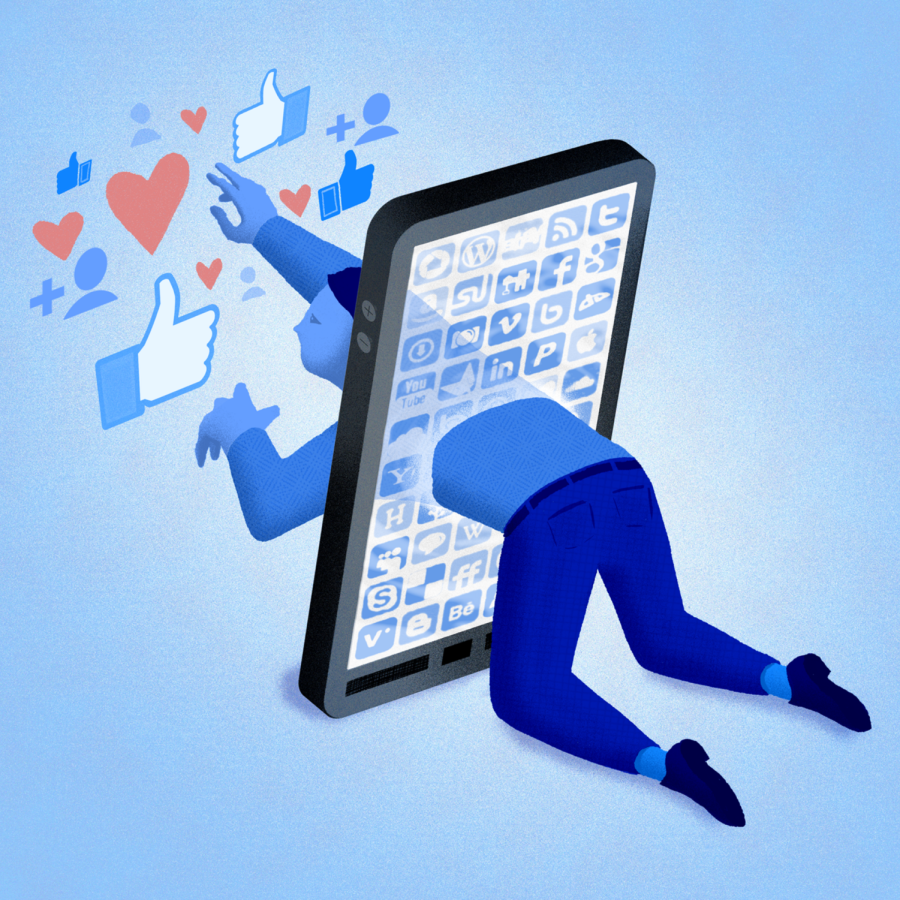Trendy or Narcissistic?
Narcissist (Nar-cis-sist): A person who has an excessive interest in or admiration of themselves
A Narcissist believes the world revolves around them.
Today, nearly half of the population of the planet uses some form of social media. According to a poll from 2020, approximately 3.6 billion people frequently use multiple forms of social media. So how does this information tie into narcissism?
Social Media & Narcissism: The Psychology
Narcissism is a personality disorder that involves traits such as “stuck on themselves” or “full of themselves,” beliefs related to entitlement and the exploitation of others.
In a psychology study done by Swansea and Milan Universities, participants who used social media excessively, through visual postings, displayed an average of 25% increase in narcissistic traits over the course of four months.
Social media literally alters our brains. With excessive use, it can even become addictive. According to a study done by Harvard University, the excessive use of social media networking lights up the same part of the brain that also ignites when taking an addictive substance. This section of the brain is referred to as the “reward area,” or the hypothalamus. The hypothalamus affects our decision-making and sensations.
When a person uses an addictive substance, neurons in the dopamine-producing areas in the brain activate and dopamine levels rise. The brain produces the same effect when it encounters anything “rewarding,” such as social media. Psychologists call this “positive reinforcement.”
Over time, continuing this pattern of “use and reward,” the brain eventually rewires itself. Now, it craves likes, retweets and emoticon reactions in order to receive the “rush” of dopamine as a reward.
Why is This Damaging?
When a person posts, “what’s on their mind,” selfies or updates, an influx of likes and attention reward them. Their takeaway is that, “people are always interested in me.”
Of course, this is not true. However, young people today are growing up in a society where a social media “presence” is more important than how that person acts in real life.
Essentially, social media rewards us for selfish behavior like talking about ourselves and posting pictures of our faces or bodies for likes and attention. This bad habit trains our brain to make narcissism feel like the norm to our bodies.
The Final Post
Snapchat filters hide our true features and people sit across the dinner table checking Facebook and surfing Instagram feeds rather than having face-to-face conversations. We are building an increasingly narcissistic society.
This side of social media has encouraged people to present an unrealistic portrait of themselves. Social media founders created it to be a form of connection and to encourage self-promotion. However, people often use it to seem important, look special, gain attention and status, and self-esteem.
In a society that revolves around a screen and a social “following,” it is important to be self-aware while indulging in social media. Otherwise, we risk falling into the pattern of narcissism.

Chelsea Jo Bryan (she/her) was born in Jonesville, Lous. Later, she moved with her family to Thibodaux, Lous. where she began to develop interests in music,...



